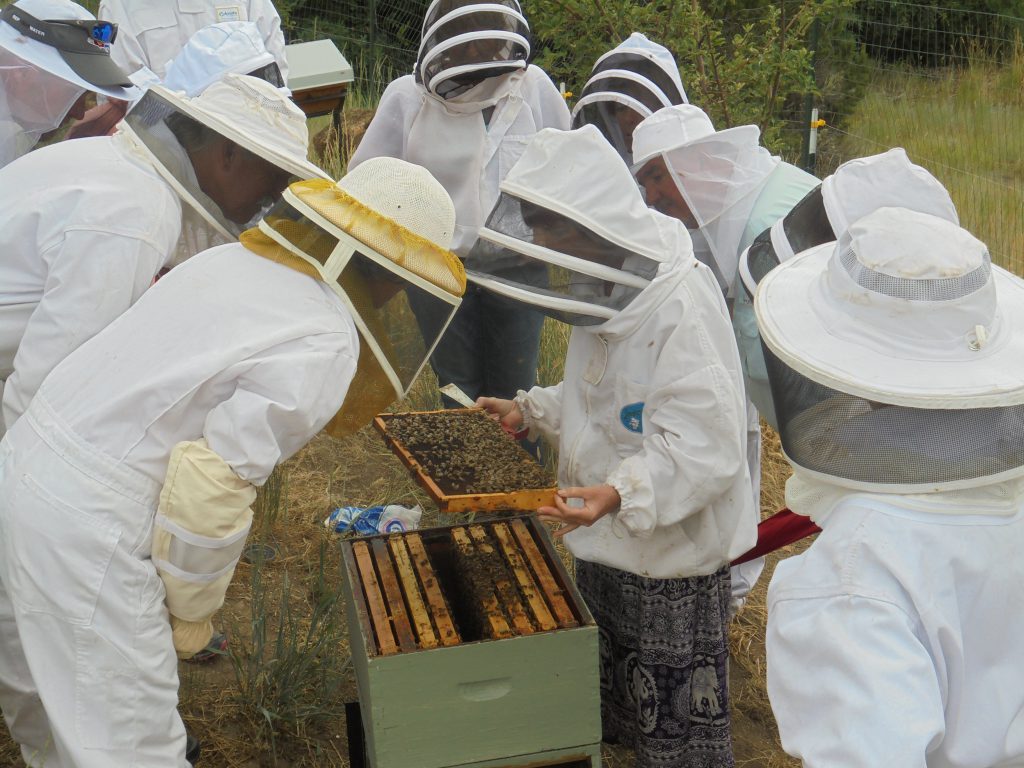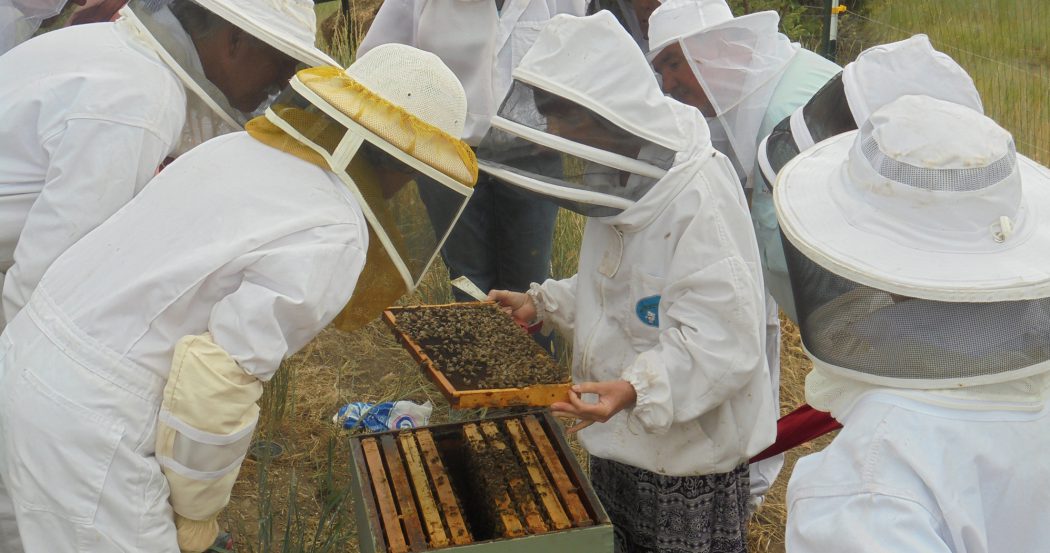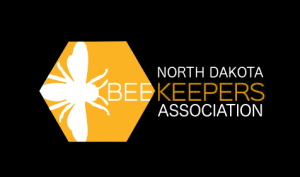 By: Tina Sebestyen
By: Tina Sebestyen
The bottom line answer to the question, “Why do beekeepers give up?” is: because their bees die, usually over and over. They discover how hard it is to keep bees alive. Someone in my beginning beekeeping class always pipes up to ask why I say that it is hard to keep bees alive, when they live just fine all alone, on their own, out in the woods. That is not the only misconception new beeks start out with. Unfortunately, bees do not live just fine on their own without human help. In fact, they are never on their own, they are sickened and harmed by Varroa destructor constantly and thus 97.5% of colonies cannot live long without human help to control this honey bee predator.
It follows that new beekeepers who think that bees live fine on their own also don’t have any idea how much time they are going to need to take care of their bees. They don’t spend enough time getting comfortable handling the bees, so they’re unable to see and recognize when there is a problem. They aren’t doing good inspections. One of the leading indicators of bee survival is beekeeper experience. Every new beekeeper starts out with no experience, but getting in that hive every week and exploring, observing and manipulating (mite counts, anyone?) are where one can gain that valuable experience.
Once a beekeeper gets over their romanticized idea of beekeeping, decides to get serious and puts on their big kid pants, they often go to the internet to learn how to keep bees. Don’t get me wrong, not everything on the internet is bad or wrong… neither is it all good or right, and new beekeepers have no way of knowing which is which. Even if all of the information found on YouTube was correct, so much of beekeeping is local. It is dictated by whether or not water falls from the sky (I hear that is called rain, we don’t know it here in CO), temperature swings, timing and bounty of forage, the presence of small hive beetles and so many other things.
One of the things new beekeepers are looking for online is a recipe for beekeeping. Something like: feed until May 15th, add boxes on June 12th, split on X date. Unfortunately, beekeeping is not like baking cookies. You need to be able to observe what is happening, extrapolate what is about to happen and come up with a plan to help the bees do what they want to do. It also is not like owning a puppy or kitten, which you can run to the vet if something mysterious happens to their health.
Beekeeping is a lot more like owning livestock, maybe a herd of cattle. As such, their health needs to be safe-guarded in advance of trouble. They need water, adequate and varied forage, and protection from wind and predators. After trouble comes, it is harder to rectify than it would be with a pet.

One great reason to join a bee club is that most have teaching apiaries. This time, we were having a potluck, and our host allowed us to go play with his bees. We often seek volunteers for apiary visits, which allows us to see surprising things, and gives a variety of situations to discuss, besides planned events at club hives.
Happily, there are solutions to these situations. One of the best, most fun, and most fruitful is to join a local bee club. Here you will find beekeepers who know what works in your area, starting with what sub-species of bee is right for you. These seasoned beeks love to share what they’ve learned the hard way, if you can just be humble enough to take them seriously, instead of thinking you’ll be able to make what wouldn’t work for them be successful for you.
One reason people don’t take the advice they are given is because they don’t understand the bee biology and behavior that is the reason behind the management or the timing of the decision. Our best beekeepers are those who read a lot about beekeeping. And, there is a lot out there. It has been said that more has been written about beekeeping than anything else besides religion. Again, what you find on the internet may have been written by a (notoriously over-confident) third year beekeeper. Books that have been published on paper by a real publisher, rather than a vanity, do-it-yourself publisher, have gone through at least some kind of vetting process. Bee journals do great reviews of such books, to help you know what will be readable and what is worthwhile information. Those journals themselves are a great source of current, vetted, information.
New (and old) beekeepers need to learn bee math, bee biology and management. These topics sound like what you wanted to avoid in high school, but they are a lot more fun in the real world, with real application in beekeeping. Once you get started, you’ll fall in love even more deeply with beekeeping. There is so much to discover and learn still!
And now to the brass tacks… beekeepers give up because bees die, and we need to learn about why they die and help them manage their challenges in advance. Bees have trouble with the five Problems. Pests, Pathogens, Poor forage, Pesticides and Politics. Every beekeeper has chosen one P, THE one that they think is THE problem, that if we just solved that one problem, everything would be great. Paying attention to one Problem without watching out for the others is another recipe for dead bees.
The most famous of the Pests is Varroa destructor, and undoubtedly, if we could solve that one, beekeeping would be a whole different proposition. But even without varroa, bees still need weeds which are in short supply in our world today, and varied sources of nectar and pollen throughout the collecting year. And, they still need a clean world to live in, one not poisoned by Pesticides. They need pro-active maintenance to be strong enough to overcome the Pathogens: viruses, bacteria and fungi. And they need us to have laws that are beneficial to their world and their keeping.
To sum it all up, if you want to continue to keep bees and have them live, so that you don’t get so frustrated with them dying all the time that you quit, here is what you need to do.
- Join a bee club and attend meetings in person. Get a mentor if you can.
- Read a lot about beekeeping, about bee biology and behavior, from books and magazines.
- Do what your mentor or local bee club advises, even if you don’t understand why right now.
- Learn to do an effective hive inspection. Plan to spend at least one hour per week on a pair of hives (one hive alone is a recipe for doom) for your first year, and at least one hour every other week thereafter.
Good luck, and happy beekeeping!







